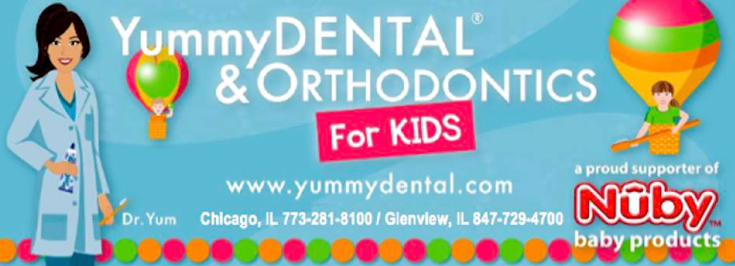Written by: Dr. Grace Yum
First things
first, let’s tackle the challenges in getting young children to brush their
teeth. Young children often don’t want their
parents/caregivers to brush because they want to do it themselves. This is
challenging because toddlers are often still developing their fine motor skills
and not great with manual dexterity.
Many toddlers just chew on the toothbrush or
try to eat the toothpaste instead of brushing their teeth. Young children may
have sensitivities to the toothpaste flavor or a gag reflex when trying to
brush their teeth, so being aware of those little discomforts might make a
difference in their brushing routine.
We know it’s a
challenge, but just how early should parents institute teeth brushing with
their kids?
Parents should start by cleaning gums and teeth as soon as the first tooth starts to come in. And even before brushing, parents should use xylitol-based swabs to clean the gums and new teeth to prevent future cavities.
Parents should start by cleaning gums and teeth as soon as the first tooth starts to come in. And even before brushing, parents should use xylitol-based swabs to clean the gums and new teeth to prevent future cavities.
It’s very important to remove bacteria and
sugar off teeth and gums, starting in infancy. Many people don’t realize that
there is sugar in both mother’s milk and formula that can cause early tooth
decay called ‘nursing decay’ or ‘bottle decay’.
What’s the best
method for teaching a young child to brush his or her teeth?
Like most things in parenting, children will learn better from example.
Like most things in parenting, children will learn better from example.
I find that children very often like to model
the behavior of their parents or caregivers. I know that’s true with Zoe, my
two-year old!
I recommend showing your kids how you brush
your own teeth, watching short clips on oral hygiene together or reading a book
about teeth brushing together.
What are the
must-haves for starting out teeth brushing for kids?
A soft bristled toothbrush is always recommended at any age. I definitely believe in electric or battery operated toothbrushes starting at age two. It takes the guessing out of how aggressively to brush. Toothbrushes that light up or play music encourage older kids to brush for the recommended two minutes.
A soft bristled toothbrush is always recommended at any age. I definitely believe in electric or battery operated toothbrushes starting at age two. It takes the guessing out of how aggressively to brush. Toothbrushes that light up or play music encourage older kids to brush for the recommended two minutes.
As for toothpaste, The Academy of Pediatrics
changed the fluoride guideline recently and now recommends fluoride toothpaste
at any age, even under age two.
Natural toothpastes, such as Tom’s for Kids,
are great for kids with many allergies or sensitivities. Mouthwash is a no-no
until after age six.
What about
flossing?
I advise parents in my practice that it is never too early to floss, especially when the child has tight contacts, meaning the teeth are all touching together. I highly recommend a flossing stick to make the process a little easier. That is what I use at home with my 2 year old.
I advise parents in my practice that it is never too early to floss, especially when the child has tight contacts, meaning the teeth are all touching together. I highly recommend a flossing stick to make the process a little easier. That is what I use at home with my 2 year old.
When is it safe to let kids brush their teeth unsupervised?
I recommend allowing kids to brush without supervision at age 7 if they seem ready. That is an age where their manual dexterity is typically improved to the point where most kids can effectively brush.
When should professional cleanings start for kids?
Professional dental visits to a certified pediatric dentist are recommended by the Academy of Pediatric Dentistry by age one or whenever the first tooth comes in, whichever is sooner. Those first visits are mostly to explain proper home treatment to parents and to conduct exams and screenings to detect abnormalities in the mouth that may need to be addressed, while cleanings will usually begin around 15 months.
If you have an anxious little one, I recommend
having an upbeat, positive discussion about the visit. Or even take them to your dental visit to
watch.
As always, children learn through you, so
modeling that good dental behavior for your little ones is a good first step.
